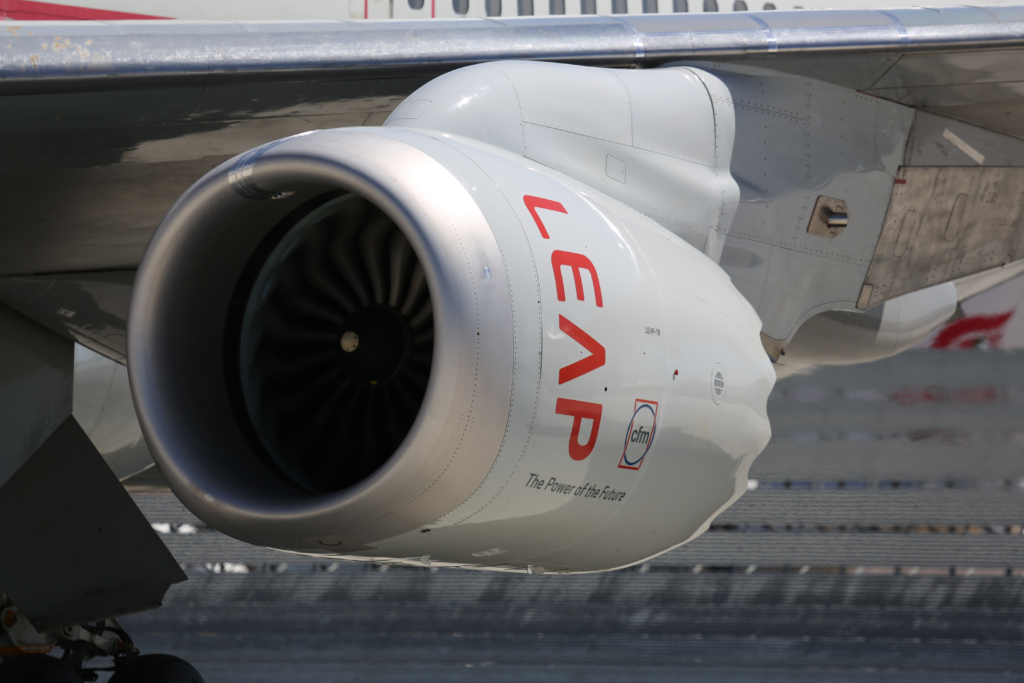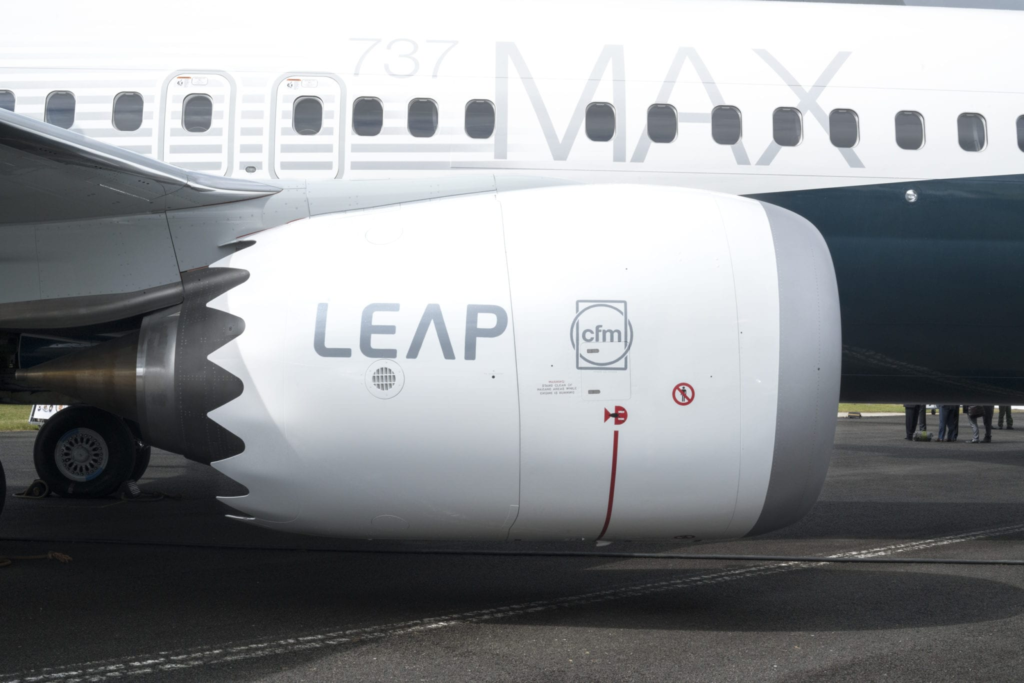WASHINGTON- The Federal Aviation Administration (FAA), the aviation authority in the United States, has issued a cautionary directive to airlines operating Boeing 737 MAX planes, advising them to restrict the use of engine anti-icing due to the potential risk of the engine’s outer casing overheating and breaking in flight.
The broken part could pose a threat to the aircraft and potentially cause harm to passengers seated near windows in the rear section of the plane, as outlined in the airworthiness directive released on Tuesday.

Boeing 737 MAX Engine Inlet New Problem
According to the directive, by August 25, airlines that operate Boeing 737 planes equipped with CFM LEAP-1B series turbofan engines must update their flight manuals to restrict engine anti-icing in dry air to less than five minutes.
The relevant section in the minimum equipment list should also be revised to reflect this change.
In India, SpiceJet (SG) operates approximately 11 Boeing 737 MAX aircraft with the mentioned LEAP-1B engines. However, according to an insider source, the Directorate General of Civil Aviation (DGCA) has not issued any circular regarding this recent discovery.
Indian carriers, including Air India (AI) and Akasa Air (QP), have a combined total of 520 LEAP-1B engines on order for around 262 Boeing 737 MAX planes slated for delivery in the coming years.
This new information might impact the delivery schedule, noted an aviation consultant. It’s important to note that the FAA airworthiness directive has been introduced as an interim measure to address safety concerns with these products.
The manufacturer is currently in the process of developing a modification to rectify the identified safety issue. Once this modification is developed, approved, and available, the FAA may consider further rulemaking, as stated by the FAA
The ongoing challenges associated with the Pratt and Whitney PW1100G engine, utilized in the A320neo aircraft, have been pushing airlines to opt for the LEAP engines. In India, Air India operates around 24 A320neo and 5 A321neo aircraft equipped with LEAP-1A engines.
However, it’s important to note that the current directive pertains solely to the LEAP-1B engine. It is predominantly used to power the Boeing 737 MAX series. The LEAP-1B engine was introduced into service in May 2017.

What’s the Actual Problem?
In response to a report highlighting concerns, the FAA initiated its investigation into the matter in June.
The investigation revealed that utilizing engine anti-ice in dry air for over five minutes during specific environmental and operational circumstances can lead to excessive engine inlet inner barrel heating, surpassing its material design limits.
This overheating could lead to a failure in the engine inlet inner barrel and substantial damage to the engine inlet cowl.
The FAA directive necessitates the revision of the existing airplane flight manual (AFM) to restrict the use of engine anti-ice under particular conditions. Additionally, airlines are required to update their minimum equipment lists to prohibit dispatching under specific circumstances.
The directive clarifies that no instances of in-service failures related to the engine inlet inner barrel have been reported thus far. However, if this concern is not addressed, it could result in the detachment of engine components, such as the inlet and fan cowl, during flight.
Such an eventuality could cause harm to the aircraft’s fuselage and windows, and potentially lead to decompression, posing a threat to passengers seated near the affected window area behind the engine.
This could also potentially damage the aircraft’s wing and flight control surfaces, ultimately resulting in loss of control of the aircraft.
Furthermore, the loss of the inlet can induce increased aerodynamic drag and uneven lift due to wing blanking, which could lead to fuel depletion on specific flights, necessitating an unplanned landing away from airports and endangering passengers.
The FAA believes immediate action is warranted in light of these potential risks. Hence, the agency has decided to implement this rule without the customary notice and comment period.
Update by GE Executive: The CFM Engines have nothing to do with this issue. “CFM does not make the engine inlet.“

Bottom Line
The most recent problem involving the Boeing 737 MAX engine arises in the wake of the aircraft’s contentious introduction into operation.
This comes after a series of events that led to the grounding of the Boeing 737 MAX from March 2019 to December 2020 in the United States, prompted by two tragic crashes resulting in the loss of 346 lives.
Similarly, in India, the aircraft remained grounded until August 2021.
Stay tuned with us. Further, follow us on social media for the latest updates.
Join us on Telegram Group for the Latest Aviation Updates. Subsequently, follow us on Google News.

